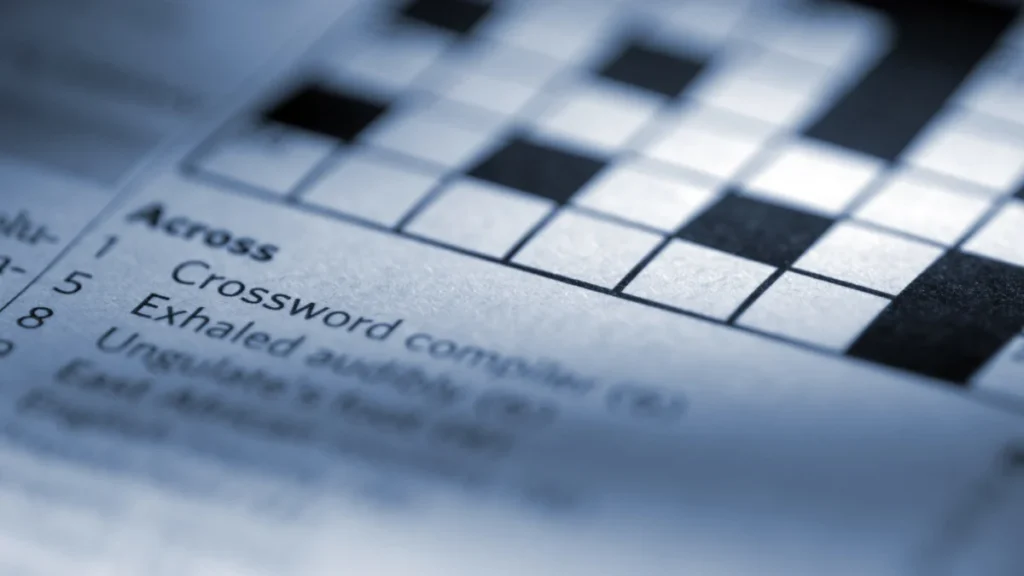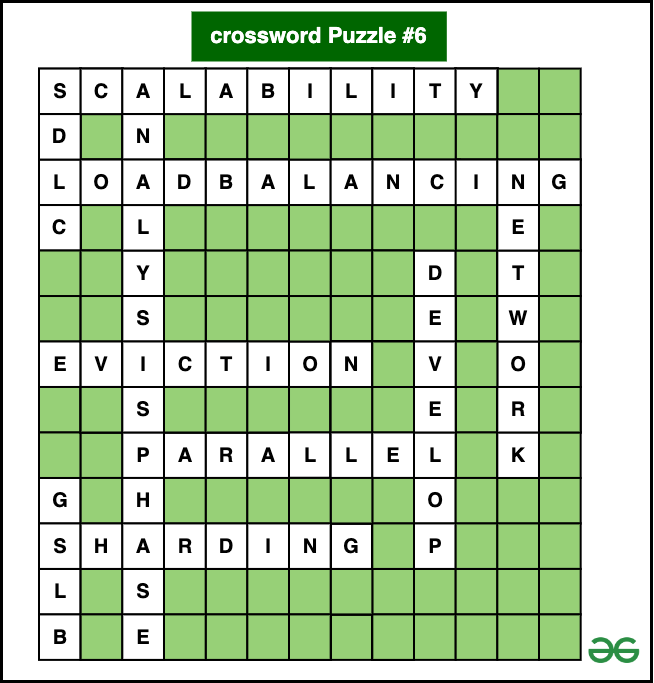When you come across the “accords NYT crossword clue,” it might leave you scratching your head. An “accord” is often used to mean an agreement or a deal, but the puzzle clue could be asking for something more specific. The New York Times crossword is known for its challenging clues, and figuring out the right answer requires a little bit of skill and knowledge. Whether you’re a beginner or a seasoned puzzle solver, understanding the different meanings of “accords” can help you unlock the answer.
If you’re stuck on the “accords NYT crossword clue,” don’t worry! In this post, we’ll guide you through various strategies to solve crossword puzzles. We’ll break down the clues, explore the most common answers, and help you become more confident in your solving abilities. With some practice and these helpful tips, you’ll soon find yourself breezing through even the trickiest clues.
Understanding the Meaning of “Accords” in Crossword Puzzles
The word “accords” can have multiple meanings, which makes it a tricky clue in crossword puzzles. One of the most common definitions of “accord” is an agreement or a treaty between parties. This meaning is often used in crossword puzzles when the answer is related to political or historical contexts. For example, a common answer to this clue might be “pacts” or “deals,” referring to formal agreements.
Another meaning of “accord” is harmony or alignment. This can be seen in contexts like “in accord with” or “to bring into accord.” This meaning is often used in crossword puzzles related to music, where “accord” can refer to harmony between notes or chords. The clue might be looking for a term like “chord” or “harmony.”
By understanding these different meanings, you’ll be able to choose the correct answer more easily when you come across the “accords NYT crossword clue.”
How to Approach the “Accords NYT Crossword Clue”
When you’re working on the “accords NYT crossword clue,” it helps to follow a systematic approach. Crossword clues often require you to think outside the box, but there are several strategies you can use to figure out the answer. Let’s take a closer look at some tips for solving this type of clue.
First, look at the length of the answer. This can give you important hints about what the word might be. For example, if the answer is five letters long, it’s likely not a word like “agreement,” but rather a shorter synonym like “pacts” or “deals.” If the clue is asking for a plural form, it’s a good idea to consider words like “accords” or “treaties.”
Next, think about the context of the puzzle. If the clue is part of a section related to music or harmony, “accord” might refer to a musical term like “chord.” If the clue is in a political or historical context, it might refer to a peace agreement or treaty, in which case the answer could be “pacts” or “treaties.”
Don’t forget to consider any crossing answers that you already know. These can help you confirm or rule out potential answers to the “accords NYT crossword clue.”
Common Answers to the “Accords NYT Crossword Clue”
Several common answers appear frequently in crossword puzzles when the clue relates to the word “accords.” These answers are often used because they fit the meaning of “accord” in different contexts. Let’s explore some of these possible answers.
- Pacts
“Pacts” is a common answer when the clue refers to formal agreements or treaties between two or more parties. If the clue mentions a political or historical context, this is likely the right answer. - Deals
Another common answer is “deals,” which also refers to agreements. If the crossword clue is looking for a less formal term than “pacts,” “deals” could be the answer. - Chords
If the clue is related to music, “chords” might be the right answer. In music, “accord” can refer to harmony between notes, and “chords” are a group of notes played together to create that harmony. - Unites
In some puzzles, the answer might be “unites,” which refers to bringing things into agreement or harmony. This is another possible answer when the clue suggests an alignment of ideas or people.
By familiarizing yourself with these common answers, you can quickly identify the correct one when you encounter the “accords NYT crossword clue.”
Systems for Settling Testing Crossword Riddles
While crossword puzzles can be challenging, there are several tips and tricks you can use to make solving them easier. Let’s take a look at some strategies that will help you tackle difficult clues like the “accords NYT crossword clue.”
Use the Crossing Answers
When you’re stuck on a clue, look at the crossing answers (the words that intersect with the clue you’re trying to solve). These can give you valuable letters that can help you guess the right word. Even if you don’t know the full answer, filling in some of the blanks can help you make a more educated guess.
Think About Synonyms
Crossword puzzles often use synonyms or different terms for the same thing. If you’re stuck on a clue, try thinking about alternative words that mean the same thing as “accord.” For example, “pacts,” “deals,” and “chords” are all synonyms of “accord” also, contingent upon the circumstance, could match the piece of information.
Work on the Easier Clues First
If you’re struggling with a difficult clue like the “accords NYT crossword clue,” focus on the easier clues first. Completing the easier clues will help you fill in more letters and make it easier to guess the answer to the trickier ones.
Take Breaks and Come Back
Sometimes, stepping away from the puzzle for a while can help you see the answer more clearly when you return. This is especially helpful when you’re stuck on a particularly tricky clue. Taking a break allows your brain to reset and come back with a fresh perspective.
By using these strategies, you can improve your crossword-solving skills and make puzzles like the “accords NYT crossword clue” easier to solve.
Why “Accords” Is a Popular Crossword Clue in the NYT Puzzle
The word “accords” appears frequently in the New York Times crossword puzzle for several reasons. One of the main reasons is that it has multiple meanings, which makes it useful for constructing crossword clues. Whether the clue refers to an agreement, a musical term, or a state of harmony, “accords” can fit a variety of contexts.
In addition, “accords” is a relatively short word, which makes it an ideal choice for crossword constructors. Crossword puzzles often use shorter words with multiple meanings to create challenging and interesting clues. Because “accords” can refer to both formal agreements and musical harmony, it’s a versatile word that can be used in many different types of puzzles.
If you’re a frequent solver of the New York Times crossword puzzle, you’ll likely encounter the “accords NYT crossword clue” multiple times. Understanding the different meanings of “accords” will help you solve these clues more quickly and accurately.
Breaking Down Crossword Puzzles: A Beginner’s Guide
If you’re new to solving crossword puzzles, getting started can seem overwhelming. However, with a few simple strategies, you can quickly improve your skills and start solving puzzles with ease. Let’s take a look at some helpful tips for beginners.
Start with the Easy Clues
When you first look at a crossword puzzle, start with the clues that seem easiest to you. These might be related to common knowledge or vocabulary that you’re familiar with. By solving these easier clues, you’ll get a few answers filled in, which can help you figure out the more difficult ones.
Focus on the Clue’s Structure
Crossword clues often follow a certain structure that can give you hints about the answer. The response could be a thing, for example, in the event that the clue takes the state of a definition. If the clue is a wordplay or a pun, the answer might be a more creative or indirect term. Pay attention to the structure of each clue to help you figure out what kind of answer is needed.
Don’t Be Afraid to Use a Thesaurus
If you’re stuck on a word, don’t hesitate to use a thesaurus or a crossword solver tool. These tools can help you find synonyms or similar words that fit the clue. Just make sure to use them as a last resort, so you don’t rely on them too heavily.
By following these beginner-friendly tips, you’ll be able to improve your crossword-solving skills and become more confident in your puzzle-solving abilities.
Conclusion
Solving the “accords NYT crossword clue” can be challenging, but with a bit of knowledge and practice, you can master it. Understanding the multiple meanings of “accord” and using strategies like looking at crossing answers and thinking about synonyms will help you become a more efficient crossword solver. Whether you’re working on a puzzle for fun or trying to improve your skills, these tips and tricks will guide you through even the toughest clues. Keep practicing, and soon you’ll be solving crossword puzzles with ease!
FAQs
Q: What does the “accords NYT crossword clue” mean?
A: It refers to finding a word that matches the definition of “accord” in a crossword puzzle. “Accord” can mean an agreement, harmony, or a musical term, depending on the context of the clue.
Q: What are some common answers to the “accords NYT crossword clue”?
A: Some common answers include “pacts,” “deals,” “chords,” and “unites,” depending on the context of the clue.
Q: How can I solve difficult crossword clues like “accords”?
A: Use crossing answers, think about synonyms, and look for context clues in the puzzle. Have some time off if important and get back with new knowledge.
Q: Why does the word “accords” appear often in the NYT crossword puzzle?
A: “Accords” appears often because it has multiple meanings and is a short word, making it useful for crossword constructors to create challenging clues.
Q: How might I further develop my crossword puzzle abilities?
A: Practice regularly, start with easier clues, and use resources like a thesaurus or crossword solver tools when you’re stuck.
Q: Are crossword puzzles good for the brain?
A: Yes, crossword puzzles help improve vocabulary, memory, and problem-solving skills, making them a great exercise for the brain.


